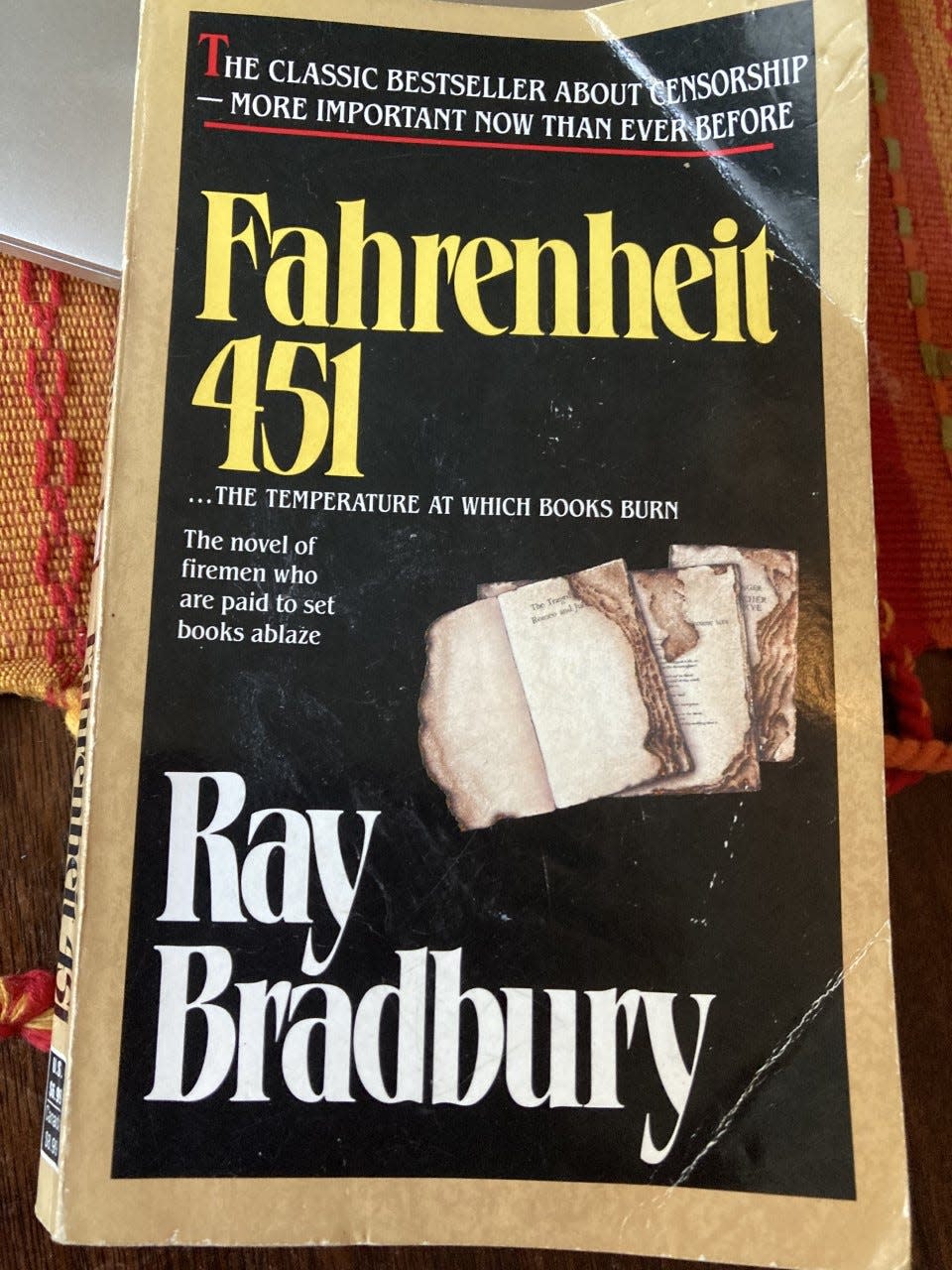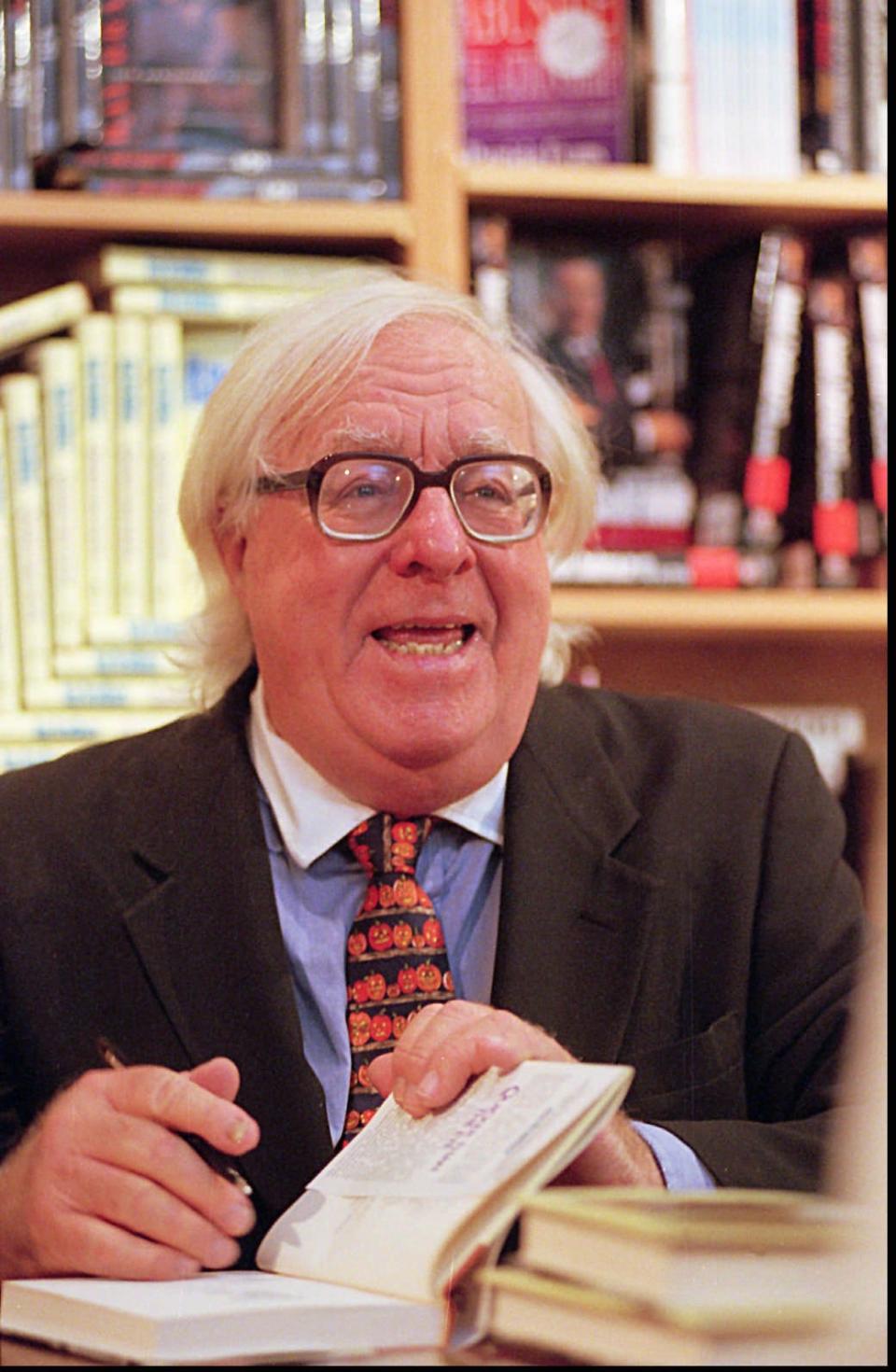A happy ending in 'Fahrenheit 451'? There's reason to revisit frequently-banned classic
Despite the lox and bagels, a visit with good friends, a bowl of collard and lentil soup (perfect for a chilly day), the conversation took a wrong turn. In minutes, without meaning to, we were mired in gloom and doom.
It doesn’t take much these days: Politics, disenfranchisement, a pending war. Take your pick.
Sensing what was happening — this wasn’t our first rodeo — we turned it around pretty quickly and moved on to the Rams’ quarterback Matthew Stafford’s second chance for victory in the Super Bowl after years with the toothless Detroit Lions, books we were reading, video from a 10-year-old’s birthday party, pending visits from nieces and nephews.
Jane Fishman: How dare the government infringe on my unalienable right to compost my vegetables

But something in that conversation must have lingered. Those things happen. Later that day when I was perusing my bookshelf looking for something to get into, I found an old paperback edition of Ray Bradbury’s “Fahrenheit 451."
It’s dystopian, which sort of fit my mood. It’s short, 179 pages. It’s accessible. It’s relevant, showing up once again as it does every few years on those dreaded, predictable, ridiculous lists of banned books in schools.
Fahrenheit 451 is the temperature at which book pages catch fire.
Guy Montag is the main character. He’s a firefighter. He’s part of a team that burns books and houses where books may be illicitly stored. He doesn’t put out fires, he starts them. Like everyone else, he also lives in a house with a “ventilator grill” that hears and knows everything. (Can you say Alexa? Or Siri? This from a book written in 1953, mind you.)
Montag is a go-along-to-get-along kind of guy. He’s a conformist. He doesn’t question what he’s doing. It’s against the law to read books and that’s fine with him. A book, Montag is taught, is “a loaded gun.” It’s dangerous and must be avoided. (Sound familiar?)
Jane Fishman: 'There's a Fishman in the shop who says he knows you': Remembering Cousin Melvin
The first line of Bradbury’s book is, “It was a pleasure to burn,” to see things blackened and changed. Then he meets Clarisse. She’s 17. She takes walks. She looks at the moon. She likes birds and butterflies. Neither she nor her family pay attention to the soap operas or propaganda played on the “ventilators” either. She and her family were known as “intellectuals, weirdos.” The top brass at the fire station have been keeping their eyes on them because they deemed them “different.”
This young girl gets Montag thinking. She reminds him of Faber, an older man he once met who liked books. Aware of his own unhappiness — a no-no in this world — Montag starts to question this fear of books, he starts to question his job as a fireman.
This is where my memory of the book changed. I remembered it being about banning books because books might lead to insurrection. I did not remember the next chapter in Montag’s life, his evolution.
Spoiler alert here: Montag, aware of his unease, starts to visit Faber, looking for guidance, for solace. Faber, taking a chance on talking to Montag, tells him books have pores.
Jane Fishman: Eureka Springs, Arkansas, is filled with art and good food. Just steer clear of the vultures.
“The more pores, the more truthfully recorded details of life per square inch you can get on a sheet of paper, the more ‘literary’ you are. So now do you see why books are hated and feared? They show the pores in the face of life.” Comfortable people, conformists, he explains, only want “wax moon faces.” They’re poreless, hairless, expressionless. So few of them dare to question the status quo.

By this time Montag, visibly confused, draws the attention of his boss. He has no choice but to escape, no easy task when the people in charge have helicopters, a “ventilator” that knows everything and a whole network of devices designed to catch subversive people like Montag.
Spoiler alert No. 2. There is a somewhat happy ending. Through Faber Montag meets thousands of other rebels like himself, people who remember books (they’ve memorized them and hope one day to reprint them). They camp out in the woods. They follow the railroad tracks, hoping like the phoenix to rise again.
Jane Fishman: An ode to the mercurial nature of January and worrying. Maybe we need more time to reassess.
That’s exactly what we have to do. Forget the gloom and doom, quit complaining, stay the course. We have no choice but to band together and keep on truckin'.
I’m in. Are you?
Jane Fishman is a contributing lifestyles columnist. Contact her at gofish5@earthlink.net or call 912-484-3045. See more columns by Jane at SavannahNow.com/lifestyle/.
This article originally appeared on Savannah Morning News: Banned books in US: It might be time to revisit Fahrenheit 451


